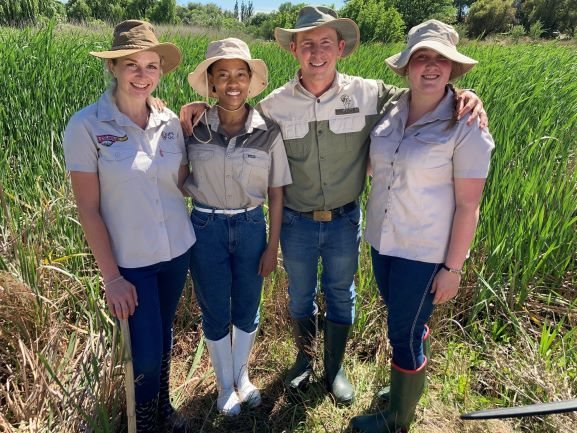
Top stories






More news


Marketing & Media
Ads are coming to AI. Does that really have to be such a bad thing?














"It is an amazing accomplishment to be world champions. The competition was a wonderful opportunity to showcase the talent of the UFS on the international stage. It has also been a platform for some insightful and educational conversations with students and specialists from around the world.
"Winning has been an affirmation of the high standard that the UFS holds and has shown that the department is excelling on a global scale," says Dr Jan Swanepoel, senior lecturer in the UFS Centre for Sustainable Agriculture.
After submitting their essay and video on the challenge, How can the sustainability, productivity, and market access of smallholder sugar cane farmers be improved? the team is now the world champions of the IFAMA International Case Study Competition.
According to Swanepoel, the group participated against teams from 17 countries all over the world and faced the Philippines in the final round.
The top finalists were invited to a final round to present their essay online before a panel of judges consisting of an international team of researchers, entrepreneurs, and policymakers.
The UFS team that emerged as winners in the IFAMA International Case Study Competition in the category for Graduates / Early Career Professionals are Carien Denner, Alina Ntsiapane, and Andries Strauss, all three from the Centre for Sustainable Agriculture, and Michelle Marais from the Department of Agricultural Economics.
Swanepoel believes that by taking a personal approach to the problem, focusing on the people, made the students stood out in the competition. "It was not just about the business plan, but also about the story behind the solution to the problem. On the international stage, this was a fresh and inspiring perspective."
He adds: "The challenges are also very personal, because it is around us and we should be part of the solution."
The students who participated in the competition are involved in similar projects that will make a positive difference in society, including increasing employment, community upliftment, and the development of small-scale farmers.
At the Centre for Sustainable Agriculture, they consider the students as well-rounded individuals. “We believe that the students should not only have the theoretical knowledge, but also be practical in their applications.”
One of the students acknowledged that: "The centre sees each student as an individual and go above and beyond to create opportunities for students to apply and develop their skills and talents in contexts that stretch far beyond the classroom.”
The top essays and the winners will be published in a special online publication, Food for the Future essay collection on IFAMA’s website.